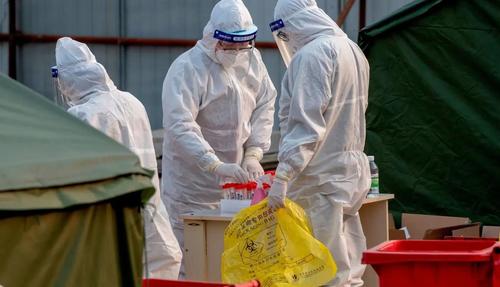Beijing Uses Anal Swabs To Detect COVID-19 Strains
29 January, 2021
Just as the WHO acknowledges (in time for the start of the Biden Administration) that the high-cycle PCR tests routinely lead to far higher numbers of false positives than the world had expected, Li Tongzeng, a doctor at Beijing's You’an Hospital, and a proponent of anal swab tests, claims that "the coronavirus survives longer in the anus or excrement than those taken from upper body tracts."
And with this, Li is suggesting that the method is becoming more common than he had initially expected. Anal swabs are being deployed in Beijing quarantine as well as in some school settings, according to recent reports out of Beijing’s Daxing district.
Authorities in the Chinese capital have started testing about 2MM people in the center of the city after two cases of a strain of the coronavirus were first detected in Britain were reported in Beijing.
The rapid mass testing campaign started on Friday, a day before the city’s legislature was expected to convene an annual meeting and with just weeks to go until the country’s political heavyweights arrive in the capital for the year’s most important political gatherings.
"All districts and work units must make epidemic prevention and control their top priority and spare no efforts in epidemic prevention and handling,” municipal government spokesman Tian Wei said on Friday afternoon, citing orders from the city’s COVID-19 task force.
The mass testing was conducted after the capital went into partial lockdown in Daxing and Shunyi, with genetic sequencing revealing two cases of the more transmissible coronavirus variant discovered last month in Britain.
The capital has since been on high alert. More than 1.2K people have been tested at a school attended by one pupil with an asymptomatic case of the COVId-19 Each of the contacts at the school had nasal, saliva and anal swabs as well as serum tests – all of which were negative.
The jury is still out on whether anal swabs, which reportedly take about 10 seconds, are more useful than a regular throat swab to test for coronavirus.

No comments:
Post a Comment